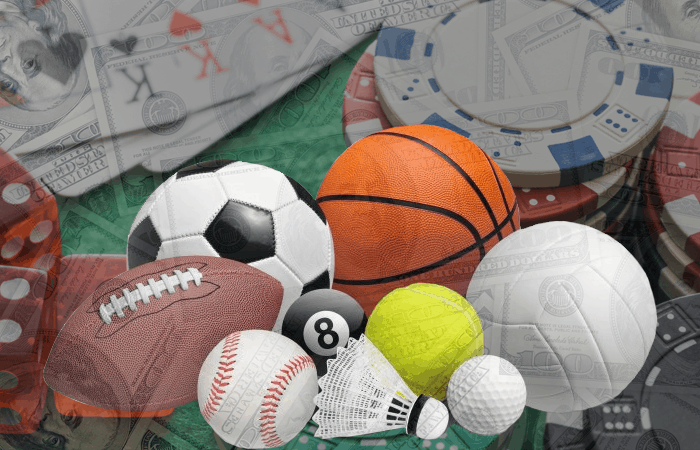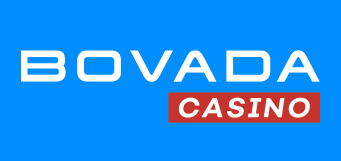Understanding the Difference Between Odds and Probability in Gambling

You use odds and probability all the time, believe it or not. You engage in probability science every time you say something like “I should be there by seven” or “It might rain today”. “It could rain” is a statement of 1/1 odds since it suggests a 50-50 shot at rain vs. no rain.
“It might rain” indicates that rain is more possible than not. And “I think it’s gonna rain” predicts that the odds of it raining are very high indeed—a “take an umbrella” level of certainty.
And as in life, the world of gambling offers us an endless string of opportunities to judge risk and reward regularly. But instead of eyeballing those dark clouds in the sky or noting the traffic on the 405 headed homeward, we assemble specific factoids to determine what scientists and gamblers call odds and probability.
But what are these terms, exactly? How are they determined? Is there even a difference between odds and probability in gambling?
Could they be just different ways to say the same thing? Or does each contain mysteries of its own, mysteries that might make our wagering life more successful?
Plus Ça Change
Probability is a mathematically derived percentage of how often something will occur in a given number of instances.
If you can put the ball through the hoop nine times out of ten from midcourt, then the probability of you scoring on any given attempt is 90%. Also, Jeff Schwartz is holding on line two.
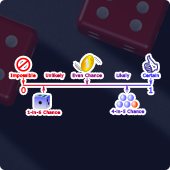
On the other hand, odds are the ratio between that event happening and that event NOT happening. You throw that ball for baskets nine times out of ten says the odds of you scoring a three-pointer on your eleventh throw are 1/9.
Hmmm. Ninety percent probability vs. 1/9 odds. It looks like we’ve solved the probability vs. odds mystery: They’re two different ways to say the same thing.
But not so fast. There’s more to odds and probability than meets the eye—mainly because there are different types of odds, just as there are different types of probabilities.
Understanding Odds in Gambling and Betting
Before we launch into why the odds are so important to gambling and wagering, let’s look at the different types of odds. Oh yes, there are various odds, and confusing one for another is a good way to sad emoji your whole day. Here are a few of the most important types of odds.
True Odds
True odds are the simple ratio between happening vs. not happening. The flip of a coin, for example, presents us with 1/1 odds. Heads or tails. Barring a shift in the space-time continuum, that coin will flip heads half the time and tails half the time.
Odds don’t predict outcomes. They only suggest a likelihood.
One point to remember is that odds aren’t as simple to calculate in sports. Many factors have to be considered for the oddsmaker to arrive at realistic odds that reflect any contest’s probable results.
Does the quarterback throw too many interceptions? Does the basketball team lead the NBA in personal fouls? Is the horse so-so on turf but a demon on the main track? Every sport collects mountains of statistics for a reason, and it’s not so that they have something to put on the back of the trading cards.
Payout Odds
Payout odds are more extended than true odds for a very specific reason. The house always wins. Even when it pays out your winnings, it has built into the odds a small amount (usually around 4%) that ensures that the losers have covered your win bet and a little something extra for the bookie.
The bet-taker isn’t running a charity in sporting events where wagers are placed through a sportsbook. So, they build a little extra into the odds, ensuring that after the winners and the losers have moved on to the next wager, the bookie has a small percentage remaining (usually around 4%).
The concept is the same at the casino (online or in RL), but you must look harder to find the payout odds.
Implied Odds
Implied odds are a fractional translation of the probability of an event occurring. For instance, an 80% probability translates into implied odds of 4/1—signifying that of the five potential outcomes, four will be failures, and one will be successful.
Understanding Probability in Betting and Gambling
As far as gambling is concerned, there are two useful forms of probability.
1Real Probability
Strictly speaking, the actual probability predicts future events based on the observed percentage of times an event can happen given specific constraints.
A small cube with its sides numbered one through six—a common die, in other words—will roll a three 16.66% of the time. A card extracted from a deck of 52 playing cards will be a heart 25% of the time.
Real probability can also be based on historical evidence. When the weatherman says there’s an 85% chance of rain today, he’s saying that the current atmospheric conditions have resulted in rain 85% of the time.
2Implied Probability
Think of implied probability as a percentage figure reverse-engineered from stated odds. If the odds are 4/1 (or +400) that something will happen, then the implied probability of that event happening is 25% (1 divided by 4).
If you think that there’s something familiar about this, you’d be right. Implied probability is the exact opposite of implied odds.
Calculating implied probability is a handy way to convert odds you find difficult to work into simple percentages. If you’re most comfortable using fractional odds (e.g., 4/1, 9/2), the sportsbook or the oddsmaker uses American odds (+400, -250). You can quickly convert any of those to implied probability with these simple odds vs. probability formulas:
Fractional Odds
- denominator / (denominator + numerator) * 100
Decimal Odds
- (1/ decimal odds) * 100
American Odds (positive)
- 100 / (positive American odds + 100) * 100
American Odds (negative)
- Negative American odds / (Negative American odds + 100) * 100
Of course, you could dodge all that math and use our very handy odds converter tool. I keep that page open in a tab whenever I’m entertaining the occasional bet.
Using Odds and Probability in Horse Racing
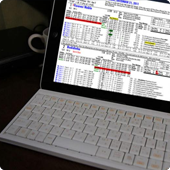
If you’re handicapping a race for your own wagering, you’ll be using all the math available to you and a wide range of statistics to concoct your own odds algorithm.
Those statistics will most likely include historical information about speed figures, general WPS (win, place show) info, WPS info for each type of race (maiden, claiming, allowance, ungraded stakes, graded stakes)—and will probably consider peaks and valleys in periodic information for each.
Don’t forget the current jockey’s history aboard the horse and their professional statistics. Ditto the trainer’s stats. Now toss in the natural variance of conditions like weather, track conditions, and the horse and jockey’s performance with those conditions.
Do that for all the horses starting the race, and you have an educated guess as to which horse is most likely to win. Hey, it’s not rocket science, but it can feel like it when you’re wading through all those statistics.
Did you think the morning-line odds already did all that math for you? Why bless your heart.
Short and sweet: No, they don’t. Morning-line odds are the track’s oddsmaker calculating how the public will bet on the race. Sure, those odds will sometimes reflect the true winners. If you consider their top four choices in each race, they’ll typically have a 95% chance they picked the winner.
People build entire careers on handicapping horse races. It’s not an easy profession. It takes some real skull-sweat to develop a consistently successful algorithm that puts the right amount of spin on each of the statistics in massages into a prediction.
It’s a good idea to test your growing handicapping skills at one of the top horse betting sites.
Using Odds and Probability in Team Sports
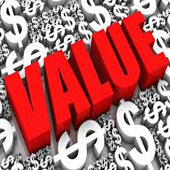
As with any wager you’re making against the house, when betting through a sportsbook, remember that you’re being offered payout odds, not true odds. Consequently, even if you win 50% of the time, you are going to show a loss over time due to the sportsbook’s version of the house edge, usually called “juice“ or “vig” (for vigorish).
Looking for profitable differences between your odds and the sportsbook’s odds is much faster if you understand implied probability well.
Since all odds are subjective guesses about the outcome of sporting events, you can often discover odds that differ from your own calculated odds.
You’re looking for value—the expectation that your odds are more accurate than those of the bookie. Don’t laugh. While professional bookies are competent at calculating odds, they’re not perfect.
In any case, you can often find attractive prices on your wager by checking out best sites for live sports betting, one of which might offer profitable odds for a particular wager.
Using Odds and Probability at the Slots
Slot machines (and electronic keno) are all powered by random number generators. So are video poker machines, but in the case of video poker, you have choices to make during play that can affect your profitability. Slot machines, on the other hand, are purely random.
This is one case where probability and odds are less useful than another number: RTP (Return to Player). This percentage indicates what that particular slot is expected to pay out to players over the life of the machine.
I know what you’re thinking, though. How do you find safe online casinos? One idea is to start with the best. To get some good options to choose from, take a peek at the top rated online casinos below.
Using Odds and Probability in Poker
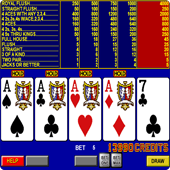
Poker is one of the few gambling events where real probability reigns supreme. This is because the house is not involved with the specific cards or hands dealt. Additionally, there are a very limited number of variables to work with.
Because of this, knowing the probability of filling specific draw hands is of utmost importance.
As I alluded to earlier, poker is one of those games with very limited and specific outcomes for every step of the game. For example, in a five-card draw game, your four-card flush has exactly nine in 47 chances of drawing a fifth heart. Put another way, the probability of drawing that fifth heart is 19.14%.
Incidentally, you can hone your skills for calculating outs on the fly by practicing at soft poker sites.
Probability vs. Odds—Which Is More Useful to the Gambler?
The answer is primarily situational but using the odds (your own and the bet takers) to arrive at implied probabilities is probably your safest and most rewarding tack.
It depends, frankly, on how serious you are about gambling. The odds are good bar-napkin predictors, but if you want to make a living at wagering, you will have to drink deep from the waters of implied probability. And since odds and probability are expressions of the same basic facts, you can use either, depending on which you feel more comfortable with.
As you progress in skill, you’ll want to look for value bets, where the offered odds are longer than what your calculations reveal. That’s going to require a healthy knowledge of implied probability.
If that idea intrigues you, you should look at our look at how the expected value works.
 75%
75% 80%
80%